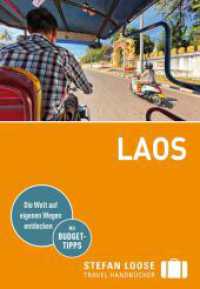- ホーム
- > 洋書
- > 英文書
- > History / World
Full Description
Artemy Kalinovsky's Laboratory of Socialist Development investigates the Soviet effort to make promises of decolonization a reality by looking at the politics and practices of economic development in central Asia between World War II and the collapse of the Soviet Union. Focusing on the Tajik Soviet Socialist Republic, Kalinovsky places the Soviet development of central Asia in a global context.
Connecting high politics and intellectual debates with the life histories and experiences of peasants, workers, scholars, and engineers, Laboratory of Socialist Development shows how these men and women negotiated Soviet economic and cultural projects in the decades following Stalin's death. Kalinovsky's book investigates how people experienced new cities, the transformation of rural life, and the building of the world's tallest dam. Kalinovsky connects these local and individual moments to the broader context of the Cold War, shedding new light on how paradigms of development change over time. Throughout the book, he offers comparisons with experiences in countries such as India, Iran, and Afghanistan, and considers the role of intermediaries who went to those countries as part of the Soviet effort to spread its vision of modernity to the postcolonial world.
Laboratory of Socialist Development offers a new way to think about the post-war Soviet Union, the relationship between Moscow and its internal periphery, and the interaction between Cold War politics and domestic development. Kalinovsky's innovative research pushes readers to consider the similarities between socialist development and its more familiar capitalist version.
Contents
Introduction: The Promise of Development
1. Decolonization, De-Stalinization, and Development
2. Ayni's Children, or Making a Tajik-Soviet Intelligentsia
3. Defining Development
4. Plans, Gifts, and Obligations
5. Nurek, "A City You Can Write About"
6. Shepherds into Builders
7. The Countryside Electrified
8. "A Torch Lighting the Way to Progress and Civilization"
9. The Poorest Republic
Conclusion: A Dream Deferred








